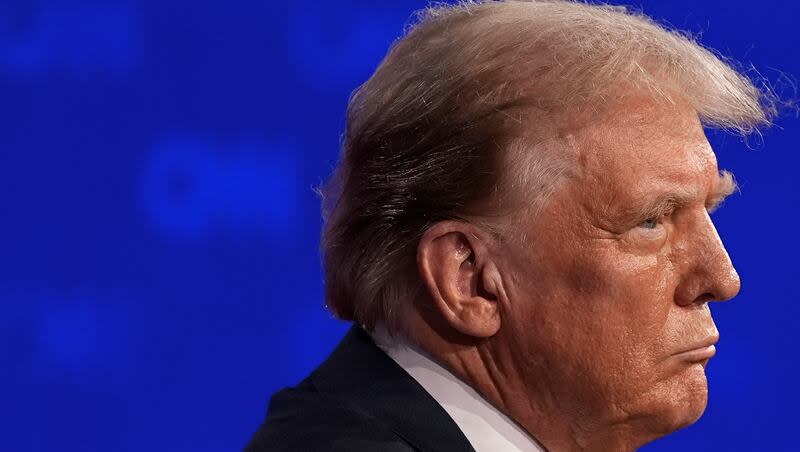Supreme Court punts Trump’s presidential immunity case back to lower court

- Oops!Something went wrong.Please try again later.
- Oops!Something went wrong.Please try again later.
- Oops!Something went wrong.Please try again later.
- Oops!Something went wrong.Please try again later.
- Oops!Something went wrong.Please try again later.
A divided Supreme Court sent former President Donald Trump’s presidential immunity case back to a lower court on Monday with detailed guidance on how to dig deeper into his immunity claims.
The majority opinion, which was authored by Chief Justice John Roberts and joined at least in part by all of the court’s more conservative justices, explained that a president’s official acts are immune from prosecution but that unofficial acts are not immune.
The lower court must reconsider the election interference case against Trump in light of these clarifications and decide which of the former president’s challenged acts should be considered official and thus removed from the case, the court said.
“Despite the unprecedented nature of this case, and the very significant constitutional questions that it raises, the lower courts rendered their (past) decisions on a highly expedited basis. Because those courts categorically rejected any form of presidential immunity, they did not analyze the conduct alleged in the indictment to decide which of it should be categorized as official and which unofficial,” Roberts wrote.
Justice Sonia Sotomayor wrote a dissent, which was joined by the court’s two other more liberal justices, and Justice Ketanji Brown Jackson also wrote her own dissent.
“Today’s decision to grant former presidents criminal immunity reshapes the institution of the presidency. It makes a mockery of the principle, foundational to our Constitution and system of Government, that no man is above the law,” Sotomayor wrote.
The majority opinion could be seen as a limited victory for Trump since it will further delay the election interference case against him.
Additionally, although the Supreme Court decision makes it easier to predict which parts of the case will eventually proceed, it doesn’t make clear determinations, meaning that confusion will persist as to what Trump’s future will hold.
Reactions to Trump ruling
Trump celebrated the Supreme Court’s ruling in a social media post.
“Big win for our Constitution and democracy. Proud to be an American,” he said.
Trump’s oldest son, Donald Trump Jr., also addressed the ruling on social media, arguing that his father is not out of the woods yet.
“I’m sure the corrupt prosecutors and DC judge will work overtime to continue their lawfare,” he wrote. “It’s all they have left.”
Special counsel Jack Smith, who brought the election interference case that led to the presidential immunity case, has so far declined to comment on Monday’s ruling.
Trump v. United States
The presidential immunity case arose after Trump was indicted on four criminal charges related to his alleged interference with efforts to certify the results of the 2020 election.
Trump argued that the election interference case couldn’t proceed since some of his challenged actions were covered by presidential immunity protections and since he hadn’t first been impeached by the House and convicted by the Senate.
The election interference case has been on hold as Trump’s claims about presidential immunity have worked their way through the legal system.
Two lower courts ruled against the former president, deciding that the scope of presidential immunity isn’t as broad as Trump’s team painted it to be.
In late February, the Supreme Court agreed to hear the case.
During oral arguments in April, the justices debated whether, as Trump’s team has argued, broad presidential immunity is necessary to ensure that presidents can do their job well, as the Deseret News previously reported.

